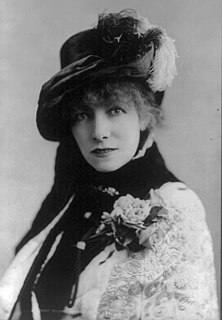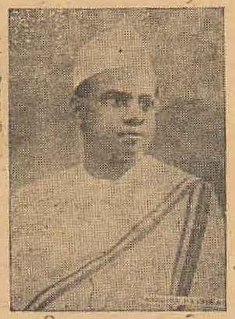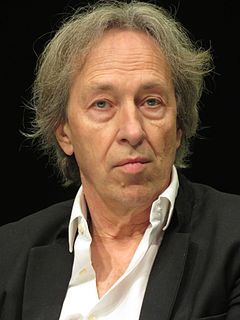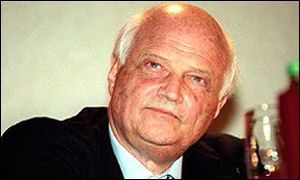A Quote by Selma Fraiberg
The child begins life as a pleasure-seeking animal; his infantile personality is organized around his own appetites and his own body. In the course of his rearing the goal of exclusive pleasure seeking must be modified drastically, the fundamental urges must be subject to the dictates of conscience and society, urges must be capable of postponement and in some instances of renunciation completely.
Related Quotes
[T]rue socialism must be voluntary - not coerced. Even in the most complete system of society we can conceive the individual must still have rights and property. He must appropriate food to sustain his life. He must wear clothes which are his. He must have his private and exclusive apartment, and must have the right to be in some place on God's earth from which he cannot be evicted by landlord of society.
If an American is to amount to anything he must rely upon himself, and not upon the State; he must take pride in his own work, instead of sitting idle to envy the luck of others. He must face life with resolute courage, win victory if he can, and accept defeat if he must, without seeking to place on his fellow man a responsibility which is not theirs.
The artist's personality must be left in his dressing-room; his soul must be denuded of its own sensations and clothed with the base or noble qualities he is called upon to exhibit.... [he] must leave behind him the cares and vexations of life, throw aside his personality for several hours, and move in the dream of another life, forgetting everything.
If the nature of the work is properly appreciated and applied, it will stand in the same relation to the higher faculties as food is to the physical body. It nourishes and enlivens the higher man and urges him to produce the best he is capable of. It directs his freewill along the proper course and disciplines the animal in him into progressive channels. It furnishes an excellent background for man to display his scale of values and develop his personality.
With only one life to live we can't afford to live it only for itself. Somehow we must each for himself, find the way in which we can make our individual lives fit into the pattern of all the lives which surround it. We must establish our own relationships to the whole. And each must do it in his own way, using his own talents, relying on his own integrity and strength, climbing his own road to his own summit.
In whatever area in life one may meet the challenges of courage, whatever may be the sacrifices he faces if he follows his conscience - the loss of his friends, his fortune, his contentment, even the esteem of his fellow men - each man must decide for himself the course he will follow. The stories of past courage can define that ingredient - they can teach, they can offer hope, they can provide inspiration. But they cannot supply courage itself. For this each man must look into his own soul.
Happy is it, indeed, for me that my heart is capable of feeling the same simple and innocent pleasure as the peasant whose table is covered with food of his own rearing, and who not only enjoys his meal, but remembers with delight the happy days and sunny mornings when he planted it, the soft evenings when he watered it, and the pleasure he experienced in watching its daily growth.
By the duty to be happy, I thus refer to the ideology... that urges us to evaluate everything in terms of pleasure and displeasure...on the one hand, we have to make the most of our lives; on the other, we have to be sorry and punish ourselves if we don't succeed in doing so. This is a perversion of a very beautiful idea: that everyone has a right to control his own destiny and to improve his life.
The great secret of morals is love; or a going out of our nature, and an identification of ourselves with the beautiful which exists in thought, action, or person, not our own. A man, to be greatly good, must imagine intensely and comprehensively; he must put himself in the place of another and of many others; the pains and pleasure of his species must become his own. The great instrument of moral good is the imagination.
None has more frequent conversations with a disagreeable self than the man of pleasure; his enthusiasms are but few and transient; his appetites, like angry creditors, are continually making fruitless demands for what he is unable to pay; and the greater his former pleasures, the more strong his regret, the more impatient his expectations. A life of pleasure is, therefore, the most unpleasing life.



































